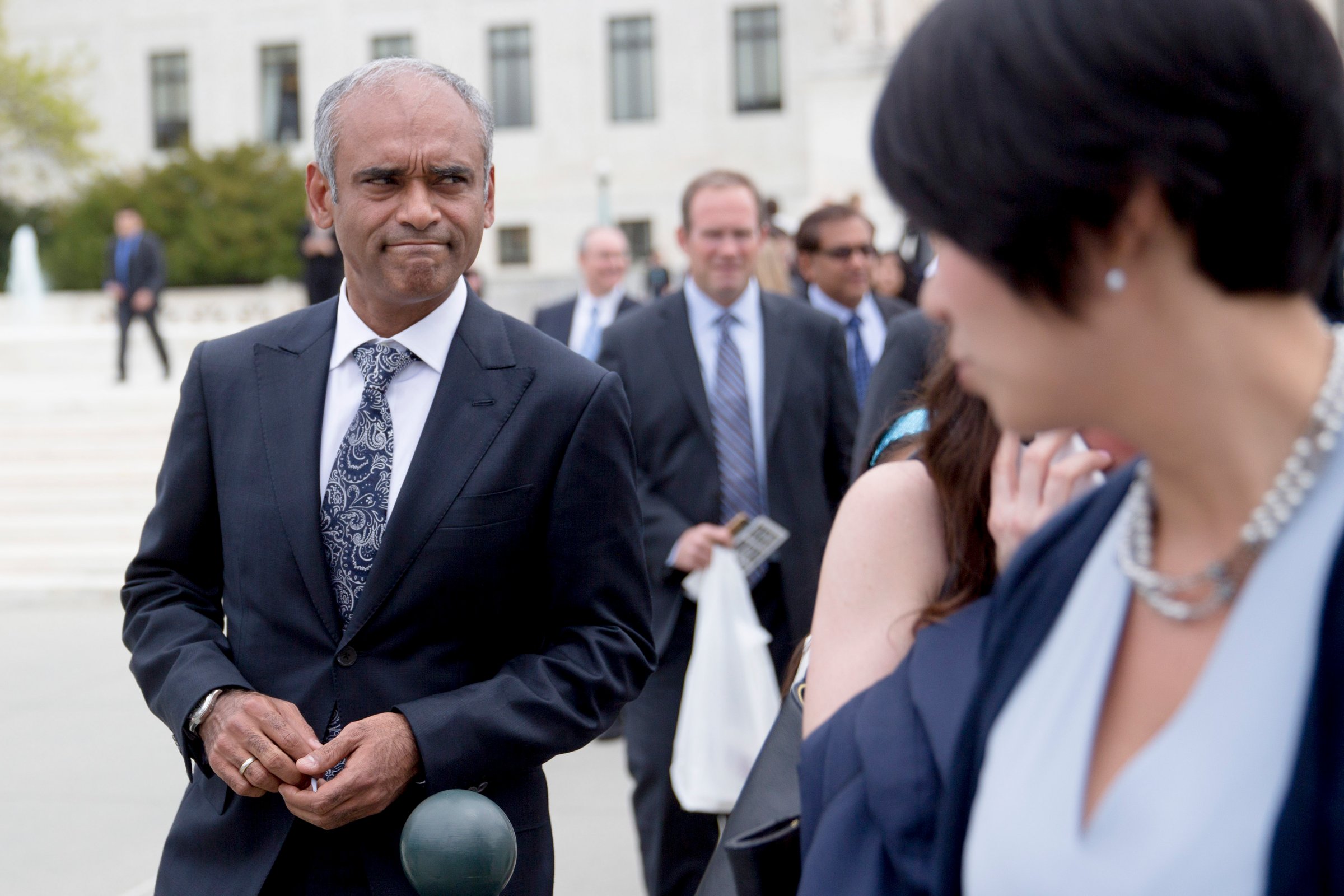
The U.S. Supreme Court’s decision today in the much-awaited Aereo case leveled a gnarly blow to the growing population of “cord-cutters” and granted an unexpected boon to Washington lobbyists.
The decision limits cord-cutters’ choices in what is an already anemic landscape. As of now, people who want to watch TV without paying for cable or satellite television can subscribe to video streaming sites like Netflix or Hulu for a set price each month. Or they can purchase actual hardware, like Apple TV or Roku, which act like updated, Internet-connected versions of old-school set-top cable boxes.
But when it comes to negotiating copyright fees—the heart of the Aereo case—those much-celebrated “disruptive technologies” aren’t really all that disruptive at all. All of them, from Netflix to Roku, play by the entrenched industry’s rules, dutifully paying what’s known as retransmission consent fees (or “retrans fees”) to broadcasters and other content producers to transmit their shows to paying customers. Netflix, for example, paid AMC for the rights to offer binge-watch favorite “Breaking Bad.”
Aereo was the only company that side-stepped the industry entirely by refusing to pay any retrans fees whatsoever. Aereo argued that it was merely facilitating people’s established right use an antenna to capture “free-to-air” broadcast signals passing through public airwaves. For the last 30 years, the court has interpreted the Copyright Act to protect people’s right to watch broadcast TV captured over an antenna at home. So long as that TV watching experience constituted a “private performance,” within the definition provided by the law, broadcast companies could not demand payment from people, the court held.
But on Wednesday, the court did not buy Aereo’s argument. Its decision not only obliterated Aereo’s business model, it also threw wide-open the door for new questions about certain passages in the Copyright Act. What is the definition of a “private performance” anyway? Why is it a “private performance” if I put an antenna on my roof, capture broadcast signals, and save them onto my DVR player to watch later, and it’s not a “private performance” when that antenna is 20 miles away in Aereo’s antenna farm, and I save those broadcast signals onto the cloud?
And with that—cue the lawyers!
In the ruling today, both the majority and dissenting opinions predicted future scuffles both in Congress and the courts over exactly this question. While the majority ruled that customers streaming broadcast TV through Aereo fell under the category of a “public performance”–not a private one–the three dissenting justices argued that Aereo had not, in fact, “performed at all.”
In both opinions, hundreds of words were dedicated to parsing the meaning of a “performance” and both ended up leaving open the possibility that the court would have to hear more cases on the matter when new technologies continued to emerge. Both suggested that perhaps Congress would need to clarify the meaning of the law.
“We cannot now answer more precisely how the Transmit Clause or other provisions of the Copyright Act will apply to technologies not before us,” Justice Steven Breyer wrote for the majority. “Questions involving cloud computing, DVRs, and other novel issues not before the Court…should await a case in which they are squarely presented.”
That sort of deep ambiguity is music to the ears of lawyers and lobbyists. Over the next year or so, Washington should gird itself for hordes of well-paid lawyers to pore over the Copyright Act in an effort to interpret it—and particularly the definition of a “performance”—in such a way that it behooves their clients and, perhaps more to the point, squeezes out whatever competition has emerged in that rapidly developing space.
We should expect cloud computing companies, including Dropbox, Google and Microsoft, to try to ensure that the definition of “performance” does not expand to include every time someone “plays back” a file on one of their services. We should also expect that other industries, particularly those that gain from strong copyright laws, like the Motion Picture Association of America, will try to make that the definition of “performance” as broad as possible in order to create legal concerns for cloud computing companies that allow users to store files without checking for copyright violations.
Whether Aereo will be around to see the other shoe drop remains to be seen. While most analysts agree that Aereo will be lights out by the end of the summer, the company seemed unwilling to throw in the towel. “Our work is not done,” Aereo CEO Chet Kanojia said in a statement following the decision “We will continue to fight for our consumers and fight to create innovative technologies.”
More Must-Reads from TIME
- Why Trump’s Message Worked on Latino Men
- What Trump’s Win Could Mean for Housing
- The 100 Must-Read Books of 2024
- Sleep Doctors Share the 1 Tip That’s Changed Their Lives
- Column: Let’s Bring Back Romance
- What It’s Like to Have Long COVID As a Kid
- FX’s Say Nothing Is the Must-Watch Political Thriller of 2024
- Merle Bombardieri Is Helping People Make the Baby Decision
Write to Haley Sweetland Edwards at haley.edwards@time.com